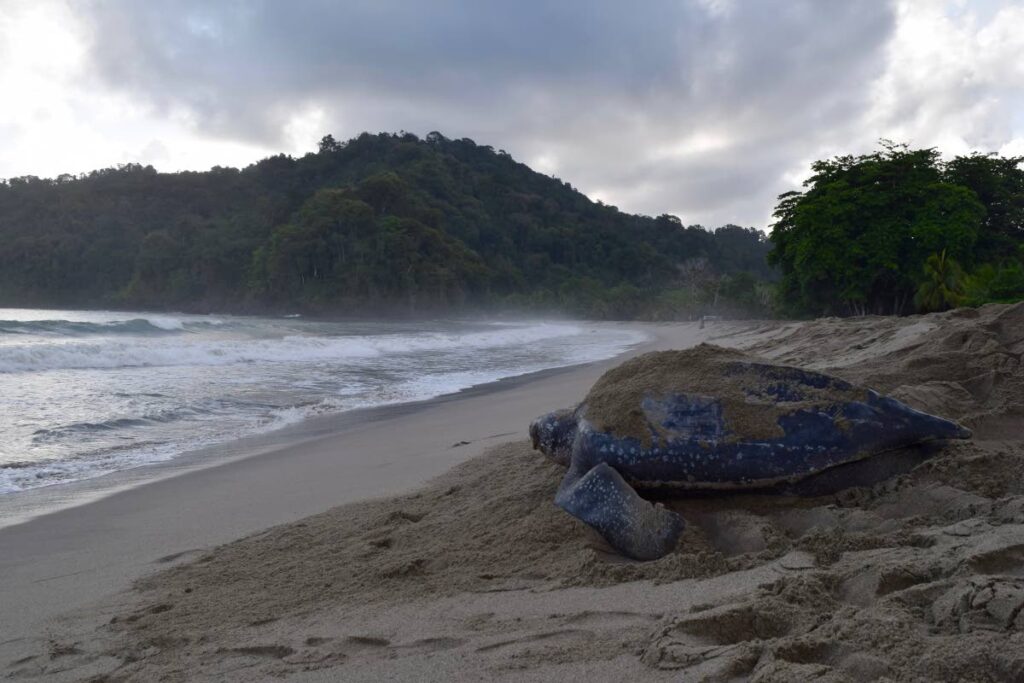SPESEAS seeking funds to raise turtle-conservation awareness

ANDREW GIOANNETTI
SPESEAS, a Trinidad and Tobago non-profit organisation promoting healthy marine ecosystems, is just about five per cent short of its target to fund a national awareness campaign for a programme to monitor sea turtles around the country.
SpeSeas has been offered a grant of €6,000 from the Regional Activity Center for Specially Protected Areas and Species of the Caribbean, which works under the Regional Co-ordination Unit for the UN Environment Programme in Kingston, Jamaica. The organisation said the grant will be used primarily to engage a marketing consultant to create a national awareness campaign to promote participation. It initially made a request for €10,000 and is seeking public financing to fund the difference.
Thus far, just over US$4,300 has been pledged from a target of US$5,000. The deadline for pledges is August 18 at midnight.
If the target is not achieved, none of the funds will be issued to SpeSeas.
The fundraiser is being hosted on experiment.com, which is designed specifically for the funding of scientific research. The website parent organisation, the Experiment Foundation, has also backed the project with seed funding of US$2,500.
SpeSeas’ co-directors marine scientist Ryan Mannette, ecologist and Newsday columnist Dr Anjani Ganase, marine biologist Dr Diva Amon, and several other marine and ecological experts have also made pledges.
Michelle Cazabon-Mannette, a marine biologist and another of SpeSeas' directors, said, “Our local research and conservation efforts have largely focused on the nesting beaches, but sea turtles spend most of their time at sea, and we know very little about where sea turtles are found offshore, how many turtles are there, what they eat, how much they move and what threats are of concern.”
She said these are key gaps that must be filled if the species are to be conserved effectively.
TT is host to five species of sea turtles, all of which are under threat of extinction and are designated protected species under TT law.
Effective conservation of sea turtles, Cazabon-Mannette added, requires understanding habitat use, identifying threats and monitoring population change.
The programme for monitoring sea turtles centres on an international smartphone application titled Turt (Turtles Uniting Researchers and Tourists) which was launched about two years ago.
Cazabon-Mannette said the intention is to promote the use of the app locally.
On Turt, users can share photos of the turtle spotted, along with the location of the encounter, from which they can be identified using photo ID technology.
Scuba divers will also be able to submit recreational dive logs via a Google form, which will allow the researchers to identify the dive sites where turtles are frequently encountered and monitor the rate of encounters over time.
Additionally, spatial analysis of turtle hotspots will allow researchers to identify threats of concern at each location and document the effects and scale of threats such as fisheries interactions, pollution and vessel collision.
The information gathered will be used to recommend targeted interventions to conserve these species.
“Key to the success of this approach is generating enough participation from members of the public,” Cazabon-Mannette said.
Support the project by clicking the link

Comments
"SPESEAS seeking funds to raise turtle-conservation awareness"